-
 Bitcoin
Bitcoin $83,645.2925
2.13% -
 Ethereum
Ethereum $1,810.3926
2.44% -
 Tether USDt
Tether USDt $0.9997
-0.01% -
 XRP
XRP $2.1625
6.88% -
 BNB
BNB $597.0728
1.93% -
 Solana
Solana $120.3405
5.84% -
 USDC
USDC $1.0000
-0.01% -
 Dogecoin
Dogecoin $0.1697
5.76% -
 Cardano
Cardano $0.6612
4.89% -
 TRON
TRON $0.2366
-0.18% -
 Chainlink
Chainlink $12.9367
4.36% -
 UNUS SED LEO
UNUS SED LEO $8.9186
-4.81% -
 Toncoin
Toncoin $3.2881
-3.62% -
 Stellar
Stellar $0.2568
1.07% -
 Avalanche
Avalanche $18.2513
3.22% -
 Sui
Sui $2.2464
5.05% -
 Shiba Inu
Shiba Inu $0.0...01235
3.20% -
 Hedera
Hedera $0.1624
3.07% -
 Litecoin
Litecoin $83.6396
2.15% -
 Polkadot
Polkadot $3.9903
0.78% -
 Bitcoin Cash
Bitcoin Cash $303.0186
2.29% -
 MANTRA
MANTRA $6.2191
-0.79% -
 Bitget Token
Bitget Token $4.5070
0.81% -
 Dai
Dai $1.0001
0.01% -
 Ethena USDe
Ethena USDe $0.9991
-0.05% -
 Pi
Pi $0.7573
46.01% -
 Monero
Monero $217.7441
1.11% -
 Hyperliquid
Hyperliquid $11.9838
7.25% -
 Uniswap
Uniswap $5.9118
4.14% -
 OKB
OKB $51.3601
9.71%
Can virtual buildings in the Metaverse be authenticated through NFT?
NFTs authenticate Metaverse virtual buildings by acting as digital deeds on a blockchain, providing verifiable ownership and enabling smart contract automation for rent and access control; however, interoperability and legal frameworks remain significant challenges.
Mar 06, 2025 at 11:37 am
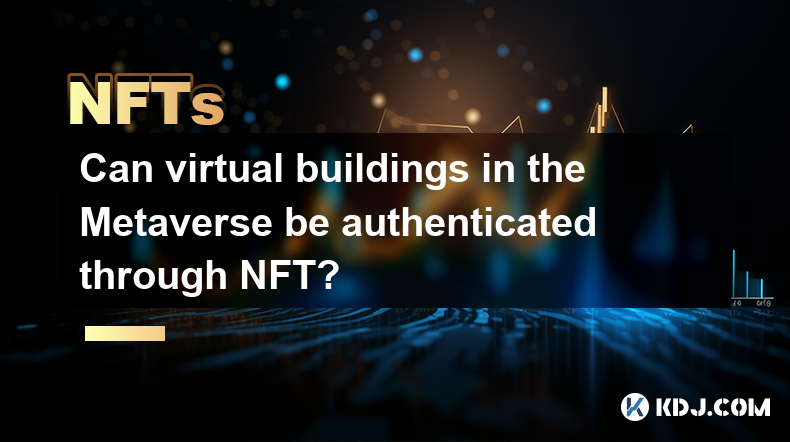
Key Points:
- NFTs can be used to authenticate virtual land and buildings in the Metaverse, providing proof of ownership.
- The process involves creating unique NFTs representing specific virtual properties.
- Smart contracts can automate aspects of ownership and transfer, enhancing security and transparency.
- Challenges remain in establishing consistent standards and interoperability across different Metaverse platforms.
- Legal frameworks are still developing to address ownership and intellectual property rights in virtual worlds.
Can Virtual Buildings in the Metaverse be Authenticated Through NFT?
The Metaverse, a persistent, shared, 3D virtual world, is rapidly evolving. A crucial aspect of this evolution is establishing secure ownership of virtual assets, including land and buildings. Non-Fungible Tokens (NFTs) are emerging as a powerful tool for achieving this authentication. By representing unique digital assets on a blockchain, NFTs provide verifiable proof of ownership, solving a key challenge in the digital realm.
The process of authenticating a virtual building using an NFT begins with the creation of the NFT itself. This NFT acts as a digital deed, inextricably linked to the specific virtual building's data. This data could include location coordinates within the Metaverse, architectural blueprints, and even textures and materials used in its construction. This detailed information ensures the uniqueness of the NFT and the property it represents.
Once the NFT is created, it is stored on a blockchain. This immutable ledger provides a permanent and transparent record of ownership. Any transfer of the NFT automatically transfers ownership of the associated virtual building. This transfer is recorded on the blockchain, providing a verifiable audit trail. The use of smart contracts further enhances security and efficiency.
Smart contracts are self-executing contracts with the terms of the agreement directly written into code. They can automate various aspects of ownership, such as rent collection or access control. For example, a smart contract could automatically transfer rent payments to the NFT owner when a tenant occupies the virtual building. This automation reduces the need for intermediaries and increases efficiency.
However, the use of NFTs for Metaverse property authentication isn't without challenges. Different Metaverse platforms often use different standards and technologies, leading to interoperability issues. An NFT representing a building on one platform may not be recognized on another. This fragmentation could hinder the seamless transfer and trading of virtual properties.
Another significant challenge lies in the legal and regulatory landscape. The legal frameworks surrounding digital property ownership are still evolving. Questions about intellectual property rights, taxation, and dispute resolution need to be addressed to ensure a clear and secure legal environment for Metaverse property transactions. The legal definitions of "ownership" in the context of virtual assets are still under development.
Despite these challenges, the potential benefits of using NFTs to authenticate virtual buildings are considerable. They offer a secure, transparent, and efficient mechanism for establishing and managing ownership in the Metaverse. The ability to programmatically control access and usage rights through smart contracts further enhances the potential of this technology.
The integration of NFTs with Metaverse platforms is still ongoing. Developers are working on improving interoperability and creating more robust systems for managing virtual property. As the Metaverse matures, we can expect more sophisticated solutions to emerge, making NFT-based authentication a standard practice for virtual buildings.
The use of NFTs for virtual property also raises questions about the potential for speculation and market manipulation. The value of virtual land and buildings is influenced by factors such as location, amenities, and the overall popularity of the Metaverse platform. These factors can lead to significant price fluctuations, creating opportunities for both profit and loss.
Furthermore, the security of the NFTs themselves needs careful consideration. While blockchain technology is generally secure, vulnerabilities can still exist. Users need to be aware of the risks of scams and phishing attacks. Choosing reputable platforms and following security best practices is crucial to protecting NFT assets.
Frequently Asked Questions:
Q: Are all NFTs created equal when it comes to authenticating virtual buildings?
A: No, the quality and security of an NFT depend on the platform it’s created on and the information encoded within it. Some NFTs might offer more robust security features or detailed property information than others.
Q: Can I use any blockchain to create an NFT for a virtual building?
A: While many blockchains can support NFTs, the choice of blockchain will influence factors such as transaction fees and the platform's compatibility with various Metaverse platforms. Some blockchains are better suited for this purpose than others due to scalability and speed.
Q: What happens if there's a dispute over ownership of a virtual building authenticated by an NFT?
A: The resolution of disputes will depend on the legal framework in place and the terms of the smart contract associated with the NFT. Currently, legal precedents are still developing in this area.
Q: Can I mortgage or lease my virtual building authenticated by an NFT?
A: Smart contracts can be designed to facilitate leasing and potentially mortgaging of virtual buildings represented by NFTs. However, the legal implications and practical implementation of such arrangements are still under development.
Q: What are the environmental implications of using NFTs to authenticate virtual buildings?
A: The energy consumption associated with some blockchains has raised environmental concerns. The choice of blockchain for creating and managing NFTs should consider its energy efficiency and environmental impact. Many projects are actively exploring more sustainable options.
Disclaimer:info@kdj.com
The information provided is not trading advice. kdj.com does not assume any responsibility for any investments made based on the information provided in this article. Cryptocurrencies are highly volatile and it is highly recommended that you invest with caution after thorough research!
If you believe that the content used on this website infringes your copyright, please contact us immediately (info@kdj.com) and we will delete it promptly.
- We Become One: The Power Of The Shared Musical Experience
- 2025-04-05 19:20:12
- VanEck Has Filed to Launch the First BNB (Binance Coin) ETF in the US
- 2025-04-05 19:20:12
- The Best Crypto to Buy in April 2024: Qubetics, Theta, Render, and Hedera
- 2025-04-05 19:15:12
- Dogecoin (DOGE) and Pepe (PEPE) Have Long Been Fan Favorites
- 2025-04-05 19:15:12
- Russia Is Moving Closer to Selling Bitcoin Confiscated During Criminal Investigations as Officials Work to Create a Legal Structure for Handling Such Digital Assets
- 2025-04-05 19:10:12
- Solana (SOL) ETF Futures Products Struggle to Attract Investors, Bitcoin (BTC) Dominates the Market
- 2025-04-05 19:10:12
Related knowledge
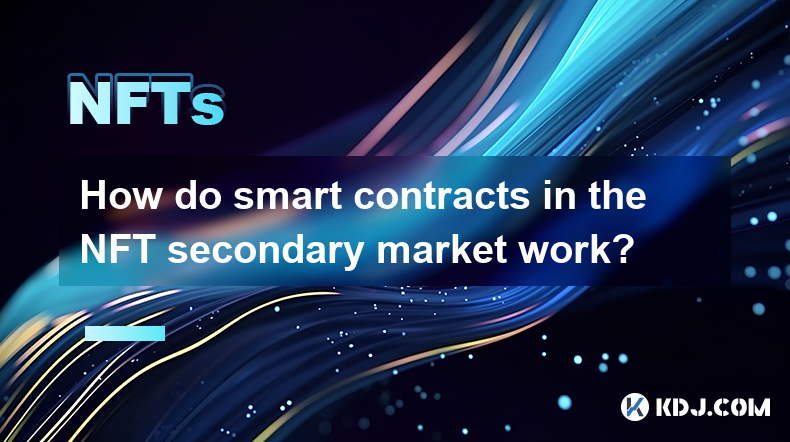
How do smart contracts in the NFT secondary market work?
Apr 03,2025 at 07:14am
Smart contracts play a pivotal role in the NFT secondary market, facilitating seamless transactions and enforcing predefined rules. These self-executing contracts with the terms of the agreement directly written into code are stored on the blockchain. In the context of NFTs, smart contracts automate the buying, selling, and transferring of digital asset...
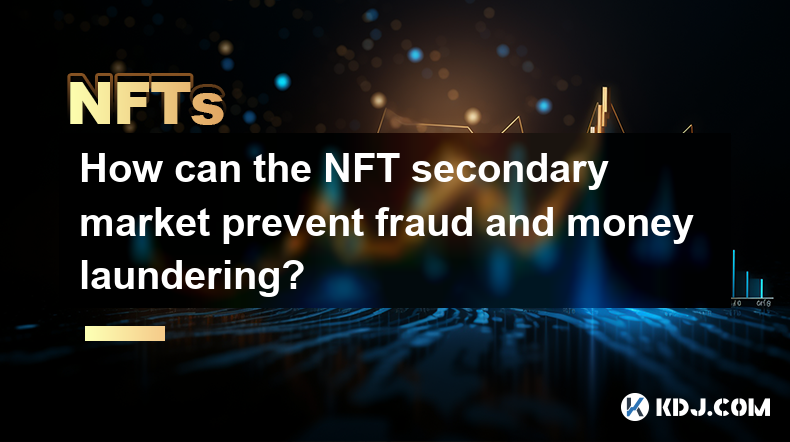
How can the NFT secondary market prevent fraud and money laundering?
Apr 03,2025 at 08:35am
The NFT secondary market has become a thriving hub for digital art and collectibles, but it also faces challenges in preventing fraud and money laundering. To tackle these issues, the market can implement various strategies and technologies to ensure a safer and more transparent trading environment. This article will explore how the NFT secondary market...
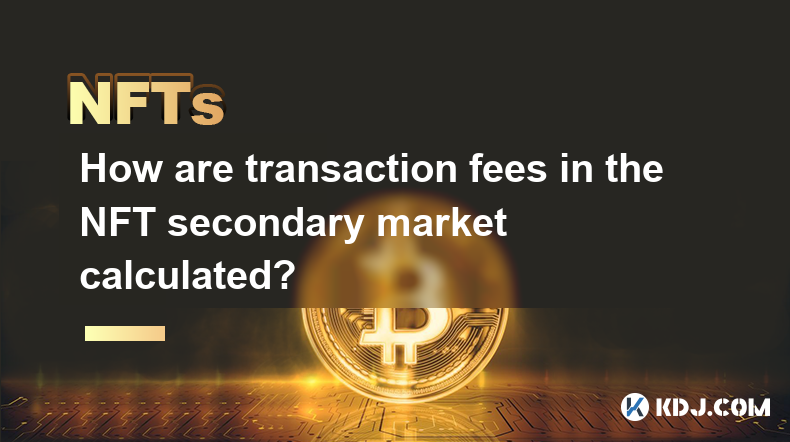
How are transaction fees in the NFT secondary market calculated?
Apr 04,2025 at 05:28am
The calculation of transaction fees in the NFT secondary market is a crucial aspect that both buyers and sellers need to understand. These fees can significantly impact the overall cost of transactions and the profits that sellers can make. In this article, we will delve into the various components that make up these fees, how they are calculated, and w...
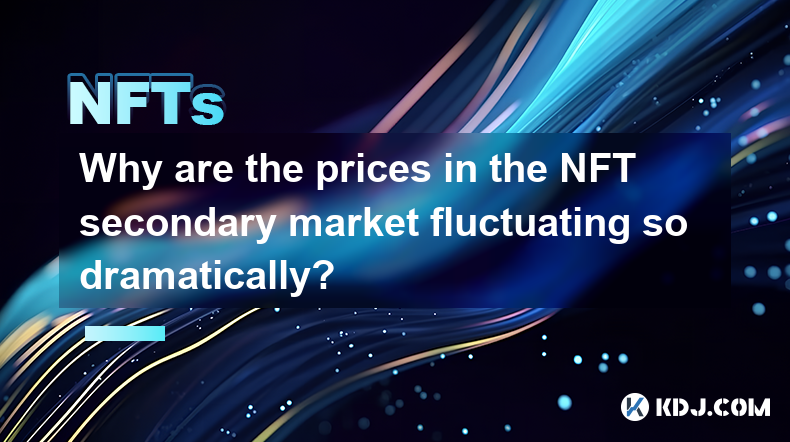
Why are the prices in the NFT secondary market fluctuating so dramatically?
Apr 03,2025 at 10:35pm
The NFT secondary market has been experiencing dramatic price fluctuations, leaving many in the cryptocurrency community puzzled and curious. To understand this phenomenon, it's essential to delve into the factors driving these price movements. From the impact of market sentiment and celebrity endorsements to the role of speculation and the unique natur...
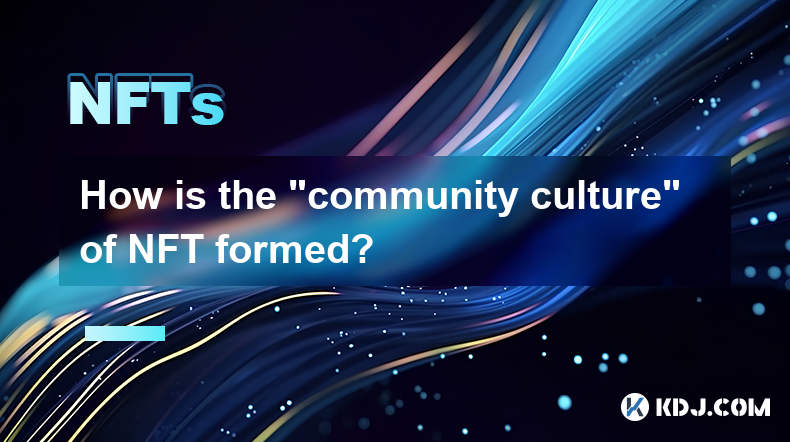
How is the “community culture” of NFT formed?
Apr 03,2025 at 11:07am
The formation of the 'community culture' within the NFT (Non-Fungible Token) space is a fascinating and multi-faceted process. It involves various elements such as shared interests, active engagement, and the creation of a sense of belonging among members. NFT communities often revolve around specific projects or artists, fostering a unique environment ...
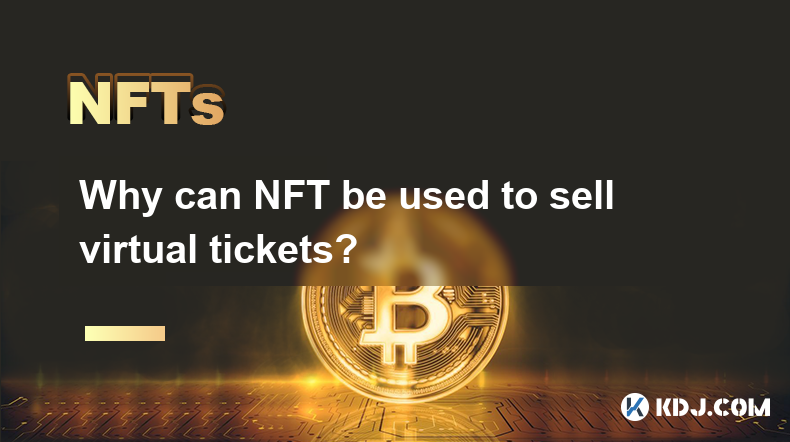
Why can NFT be used to sell virtual tickets?
Apr 03,2025 at 01:35pm
NFTs, or Non-Fungible Tokens, have revolutionized the way we think about digital ownership and value, particularly in the realm of virtual tickets. The primary reason NFTs can be used to sell virtual tickets is their unique nature. Unlike cryptocurrencies such as Bitcoin or Ethereum, which are fungible and can be exchanged on a one-to-one basis, NFTs ar...

How do smart contracts in the NFT secondary market work?
Apr 03,2025 at 07:14am
Smart contracts play a pivotal role in the NFT secondary market, facilitating seamless transactions and enforcing predefined rules. These self-executing contracts with the terms of the agreement directly written into code are stored on the blockchain. In the context of NFTs, smart contracts automate the buying, selling, and transferring of digital asset...

How can the NFT secondary market prevent fraud and money laundering?
Apr 03,2025 at 08:35am
The NFT secondary market has become a thriving hub for digital art and collectibles, but it also faces challenges in preventing fraud and money laundering. To tackle these issues, the market can implement various strategies and technologies to ensure a safer and more transparent trading environment. This article will explore how the NFT secondary market...

How are transaction fees in the NFT secondary market calculated?
Apr 04,2025 at 05:28am
The calculation of transaction fees in the NFT secondary market is a crucial aspect that both buyers and sellers need to understand. These fees can significantly impact the overall cost of transactions and the profits that sellers can make. In this article, we will delve into the various components that make up these fees, how they are calculated, and w...

Why are the prices in the NFT secondary market fluctuating so dramatically?
Apr 03,2025 at 10:35pm
The NFT secondary market has been experiencing dramatic price fluctuations, leaving many in the cryptocurrency community puzzled and curious. To understand this phenomenon, it's essential to delve into the factors driving these price movements. From the impact of market sentiment and celebrity endorsements to the role of speculation and the unique natur...

How is the “community culture” of NFT formed?
Apr 03,2025 at 11:07am
The formation of the 'community culture' within the NFT (Non-Fungible Token) space is a fascinating and multi-faceted process. It involves various elements such as shared interests, active engagement, and the creation of a sense of belonging among members. NFT communities often revolve around specific projects or artists, fostering a unique environment ...

Why can NFT be used to sell virtual tickets?
Apr 03,2025 at 01:35pm
NFTs, or Non-Fungible Tokens, have revolutionized the way we think about digital ownership and value, particularly in the realm of virtual tickets. The primary reason NFTs can be used to sell virtual tickets is their unique nature. Unlike cryptocurrencies such as Bitcoin or Ethereum, which are fungible and can be exchanged on a one-to-one basis, NFTs ar...
See all articles



















































































